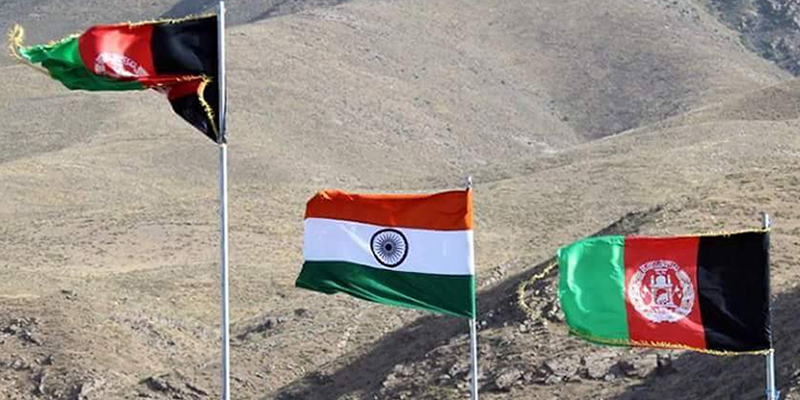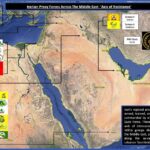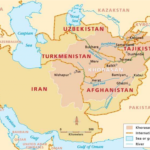Here we go… the payback for $1 billion in weaponry and not jumping to Saudi Arabia’s immediate aid.
First, there was The New York Times decrying Pakistan’s nuclear weapons capabilities because we were buying nuclear submarines from China and we have missiles that can deliver a nuclear warhead to Israel, America’s greatest partner in the Middle East. The article was strangely silent about India’s massive military support from Russia and the United States, nuclear weapons deal courtesy of George Bush, constant violations of the Line of Control in Kashmir and unprovoked firing into Sialkot, that’s in Pakistan, not Kashmir.
Wait.. didn’t the State Department say that they were approving the weapons deal to Pakistan because Russia and China were also supplying arms to Pakistan?
And didn’t they also say that if we were to send our troops to Saudi Arabia, it wouldn’t affect our fight against terrorism and extremism on our own soil?
Now, Defense One runs an article from a Senior Fellow of the Council of Foreign Relations saying that India should be the stabilization partner in Afghanistan, rather than Pakistan and China.
While citing the Indian supremacy in democracy, economics and civilian security (are they kidding?), the author says “Washington should make it clear to Islamabad that Indian support for Afghanistan’s stability—especially without “boots on the ground”—poses no threat to Pakistani interests and should not be disrupted.”
Let’s put aside Modi’s record on forced conversions of Christians and Muslims to Hinduism as a state policy, the support of the Indian Army of the RSS and the Saffron Brigade, and the known elements within the Indian community that would like nothing better than to eliminate Pakistan from the map. Let’s also put aside the fact that Pakistan has a strong understanding of the Taliban than any country in the world and, with China, is best able to bring them to the negotiation table with the Ghani government.
But what the article fails to mention is the financial and military support that has been provided to the Tehrik-e-Taliban by India and it’s crackpot intelligence service, RAW. Yeah, I said it. Crackpot! When a bird shits in Delhi and you automatically point to Pakistan and the ISI, either you are crackpots or the most incompetent intelligence organization in the world. Nor does the article explain the rationale for Indian Consulates along the Pakistan border in regions that have no interest or love for India.
The article is full of priceless lines like – “Seen as a friend and honest broker by most Afghans, India is the fifth-largest bilateral donor to Afghanistan with over $2 billion in pledged support” – and wild assertions that India is better able to handle the Taliban, al-Qaeda and the Islamic State influence in Afghanistan.
This is probably one of the clearest indictions of how “unbiased” the Senior Fellow are these gems: “India does not want China to displace India’s influence in its own region.” – and – “But he (Modi) also expects Pakistan to crack down on terrorism emanating from its territory—a stance Washington supports—but Islamabad seems unable or unwilling to implement.”
Unable or unwilling to implement? Maybe you haven’t heard about Zarb-e-Azb, Khyber 1, Khyber 2 and a host of other operations. And if you are concerned about the terrorist organizations in Punjab, they can’t be touched because Modi’s best friend, Nawaz Sharif, and his imp of a brother, Shahbaz Sharif, refuse to accept that there are terrorist organizations in Punjab. So let’s not use words like “unable” and “unwilling to implement.”
Since December 2014, Pakistan’s armed forces have finally gotten the green light it wanted from the CIVILIAN GOVERNMENT to take a hard-nosed, brutal assault to the terrorist networks operating in Pakistan. This was after the armed forces had hammered the TTP and surrounded them, only to have their guns ordered silent so that the Prime Minister could take up another round of negotiations.
Also, let’s recall that India was/is Karzai’s best friend and bedfellow for his entire term as Mayor of Kabul. So what they were unable to accomplish in 13 years on the ground with US and coalition troops, they believe that they will be able to do now without them?
It’s time for Pakistan to follow the same hot pursuit protocol that the US military used when they fired on Salala. We know that Afghanistan is harboring Pakistan’s most wanted terrorists and it’s time we took them out since the Indian trained Afghan Security Force doesn’t seem to be able or willing to do it themselves. We also know that India is supplying arms to the terrorist groups that operate in Baluchistan, including the Baluchistan Republican Army and the Baluchistan Liberation Army.
This article originally appeared on Khalid Muhammad’s Agency Rules website.
Syed Khalid Muhammad, the Founder and Executive Director of CommandEleven, brings over three decades of leadership experience, guiding organizations globally in the realms of security, technology, marketing, and management. Notably, he authored "Agency Rules: Never an Easy Day at the Office," a pioneering espionage novel published in 2013. This novel holds historical significance as the first English-language espionage novel written by a Pakistani, achieving international bestseller status and currently available on Amazon.
Furthermore, Syed Khalid Muhammad has made notable appearances on several international TV channels, providing insightful analysis on security and geopolitics.
Since the establishment of CommandEleven in 2015, Khalid has expanded his expertise to encompass analysis, risk and threat assessment, and consultancy in the fields of terrorism, counter-terrorism, counterintelligence, geopolitics, and cognitive warfare. Within CommandEleven, he has successfully cultivated a comprehensive human and electronic intelligence network spanning the Indian subcontinent. Continuously growing, this network extends into various conflict zones globally, providing CommandEleven with actionable, real-time intelligence that forms the foundation of its analytical endeavors.
CommandEleven currently serves multiple clients, including corporate giants, by assisting them in analysis related to security, threat assessment, and threat mitigation strategies in Pakistan and Afghanistan.









